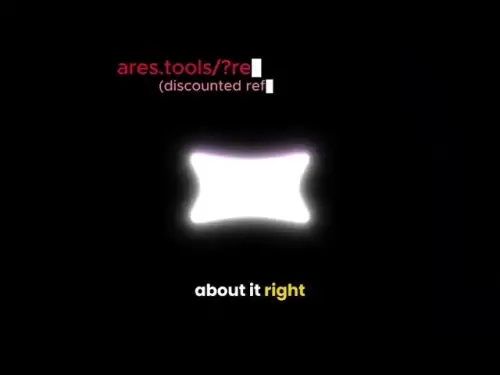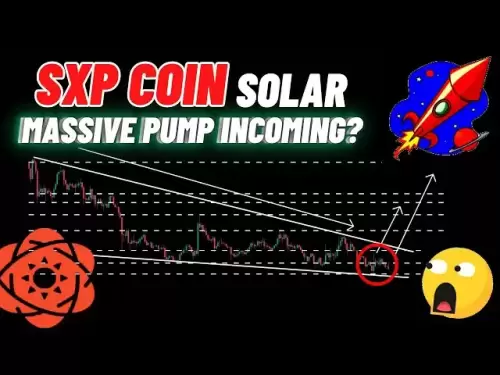-
 Bitcoin
Bitcoin $115100
-2.99% -
 Ethereum
Ethereum $3642
-1.38% -
 XRP
XRP $3.027
-5.51% -
 Tether USDt
Tether USDt $1.000
-0.05% -
 BNB
BNB $763.4
-1.32% -
 Solana
Solana $177.2
-5.42% -
 USDC
USDC $0.9999
-0.02% -
 Dogecoin
Dogecoin $0.2247
-6.47% -
 TRON
TRON $0.3135
0.23% -
 Cardano
Cardano $0.7824
-4.46% -
 Hyperliquid
Hyperliquid $42.53
-0.97% -
 Stellar
Stellar $0.4096
-6.09% -
 Sui
Sui $3.662
-2.61% -
 Chainlink
Chainlink $17.63
-3.57% -
 Bitcoin Cash
Bitcoin Cash $536.3
2.94% -
 Hedera
Hedera $0.2450
0.34% -
 Avalanche
Avalanche $23.23
-3.15% -
 Litecoin
Litecoin $112.2
-1.23% -
 UNUS SED LEO
UNUS SED LEO $8.976
-0.30% -
 Shiba Inu
Shiba Inu $0.00001341
-2.72% -
 Toncoin
Toncoin $3.101
-2.44% -
 Ethena USDe
Ethena USDe $1.001
-0.05% -
 Uniswap
Uniswap $10.08
-1.97% -
 Polkadot
Polkadot $3.938
-2.77% -
 Monero
Monero $323.9
0.87% -
 Dai
Dai $0.9999
-0.02% -
 Bitget Token
Bitget Token $4.481
-1.69% -
 Pepe
Pepe $0.00001199
-5.94% -
 Aave
Aave $288.2
-0.68% -
 Cronos
Cronos $0.1279
0.36%
Do I have to pay taxes when buying Ethereum ETF? What is the tax rate?
Ethereum ETFs are subject to taxation, with capital gains tax rates varying by jurisdiction and holding period; proper reporting is essential.
May 16, 2025 at 02:36 pm
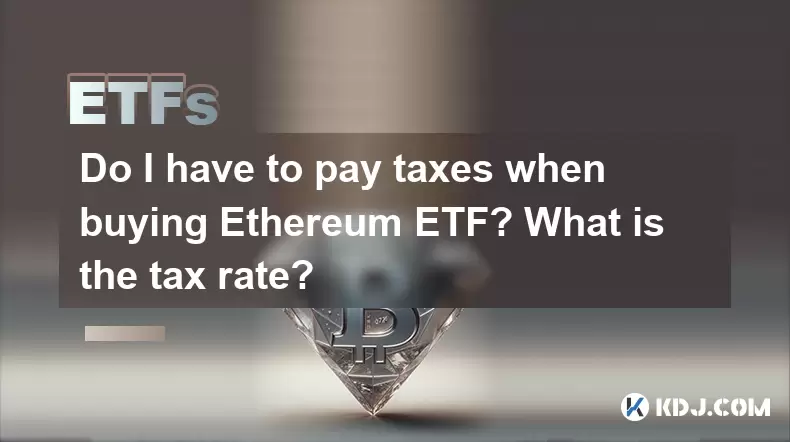
When considering the purchase of an Ethereum Exchange Traded Fund (ETF), it's essential to understand the tax implications associated with such investments. Ethereum ETFs are subject to taxation, but the specifics can vary based on your country of residence and the type of transactions you engage in. This article will delve into the tax considerations for buying Ethereum ETFs, the potential tax rates, and how different jurisdictions handle these investments.
Understanding Ethereum ETFs
Before diving into the tax implications, it's important to understand what an Ethereum ETF is. An Ethereum ETF is a type of investment vehicle that tracks the price of Ethereum, allowing investors to gain exposure to the cryptocurrency without directly owning it. These ETFs are traded on traditional stock exchanges, making them accessible to a broader range of investors.
Tax Implications of Buying Ethereum ETFs
When you buy an Ethereum ETF, you are not directly buying Ethereum but rather shares in a fund that holds Ethereum or other assets related to it. The act of purchasing the ETF itself is typically not a taxable event. However, any gains or losses realized from the sale of these shares are subject to taxation.
Capital Gains Tax on Ethereum ETFs
The primary tax consideration for Ethereum ETFs is the capital gains tax. Capital gains tax is levied on the profit made from selling an asset that has increased in value. The tax rate can vary depending on whether the gains are classified as short-term or long-term.
- Short-term capital gains are typically taxed at the same rate as ordinary income. If you hold the ETF for less than a year before selling, any profit you make will be considered a short-term gain.
- Long-term capital gains are usually taxed at a lower rate and apply to assets held for more than a year. The exact rate can depend on your income level and the tax laws in your country.
Tax Rates for Ethereum ETFs
The tax rates for Ethereum ETFs vary significantly by jurisdiction. In the United States, for example, short-term capital gains are taxed at your ordinary income tax rate, which can range from 10% to 37%. Long-term capital gains are taxed at 0%, 15%, or 20%, depending on your income.
In the United Kingdom, capital gains tax rates are 10% or 20% for basic rate taxpayers and 20% for higher or additional rate taxpayers. There is also an annual tax-free allowance that can be used to offset gains.
In Canada, capital gains are taxed at 50% of your marginal tax rate. This means if your marginal tax rate is 30%, you would pay 15% on any capital gains.
Tax Reporting for Ethereum ETFs
Proper tax reporting is crucial when dealing with Ethereum ETFs. You are required to report any gains or losses from the sale of your ETF shares on your tax return. This includes keeping accurate records of your purchase and sale transactions, as well as any dividends or distributions received from the ETF.
Dividends and Distributions from Ethereum ETFs
Some Ethereum ETFs may pay dividends or other distributions to shareholders. These payments are typically taxed as ordinary income. The exact tax rate will depend on your income level and the tax laws in your country.
Tax Considerations for Different Jurisdictions
Different countries have varying approaches to taxing cryptocurrency-related investments like Ethereum ETFs. In the United States, the IRS treats cryptocurrencies as property for tax purposes, meaning that any gains from the sale of an ETF are subject to capital gains tax.
In the European Union, tax laws can vary widely from one member state to another. For example, Germany does not tax long-term capital gains on cryptocurrencies, while France taxes them at a flat rate of 30%.
In Australia, cryptocurrencies are treated as property, and capital gains tax applies to any profit made from their sale. However, there is a 50% discount available for assets held longer than a year.
How to Minimize Taxes on Ethereum ETFs
While taxes on Ethereum ETFs are unavoidable, there are strategies you can use to minimize your tax liability. One approach is to hold your ETF shares for more than a year to benefit from lower long-term capital gains tax rates.
Another strategy is to use tax-loss harvesting, where you sell losing investments to offset gains from other investments. This can help reduce your overall tax bill.
Finally, consider the timing of your sales. If you are close to the one-year mark, holding onto your shares a bit longer can qualify you for the lower long-term capital gains rate.
Frequently Asked Questions
Q: Do I need to report my Ethereum ETF transactions if I didn't make any profit?
A: Yes, you are required to report all transactions related to your Ethereum ETF, even if you did not make a profit. Losses can be used to offset gains from other investments, so it's important to keep accurate records.
Q: Can I deduct the fees associated with buying and selling Ethereum ETFs?
A: In some jurisdictions, you may be able to deduct transaction fees and other investment-related expenses. However, this depends on the specific tax laws in your country, so it's best to consult with a tax professional.
Q: How does the tax treatment of Ethereum ETFs differ from directly owning Ethereum?
A: The tax treatment can differ significantly. When you directly own Ethereum, you are subject to capital gains tax on any profits from selling it. With an ETF, you are taxed on the gains from selling the ETF shares, and any dividends or distributions are taxed as ordinary income. Additionally, the tax rates and reporting requirements can vary based on the structure of the ETF and the jurisdiction.
Q: Are there any tax advantages to investing in Ethereum ETFs over directly owning Ethereum?
A: The tax advantages can vary by jurisdiction. In some cases, ETFs may offer more favorable tax treatment, such as the ability to use tax-loss harvesting or benefit from lower long-term capital gains rates. However, directly owning Ethereum can provide more control over your investments and potentially lower transaction costs. It's important to consider your individual circumstances and consult with a tax advisor to determine the best approach for your situation.
Disclaimer:info@kdj.com
The information provided is not trading advice. kdj.com does not assume any responsibility for any investments made based on the information provided in this article. Cryptocurrencies are highly volatile and it is highly recommended that you invest with caution after thorough research!
If you believe that the content used on this website infringes your copyright, please contact us immediately (info@kdj.com) and we will delete it promptly.
- VIRTUAL Weekly Drop: Recovery Analysis and Privacy Push
- 2025-07-26 08:50:11
- Bitcoin, Cynthia Lummis, and Freedom Money: A New Yorker's Take
- 2025-07-26 08:30:11
- Crypto Gainers, Top 10, Week 30: Altcoins Buck the Trend
- 2025-07-26 08:55:12
- Solana, Altcoins, and Coinbase: What's the Buzz?
- 2025-07-26 06:30:12
- XRP in 2025: Bull Run or Bust?
- 2025-07-26 07:30:12
- Ruvi AI Presale Heats Up: Early Investors Eyeing Big Gains
- 2025-07-26 09:10:13
Related knowledge
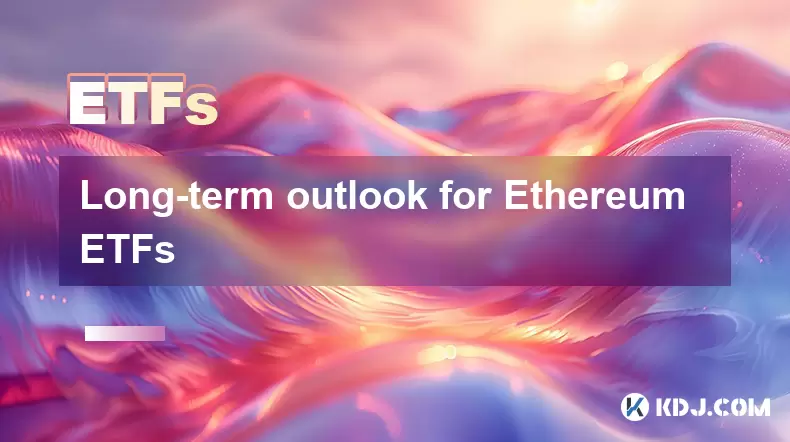
Long-term outlook for Ethereum ETFs
Jul 22,2025 at 06:42am
What Exactly Is an Ethereum ETF?An Ethereum Exchange-Traded Fund (ETF) is a financial product that tracks the price of Ethereum (ETH) and is traded on...
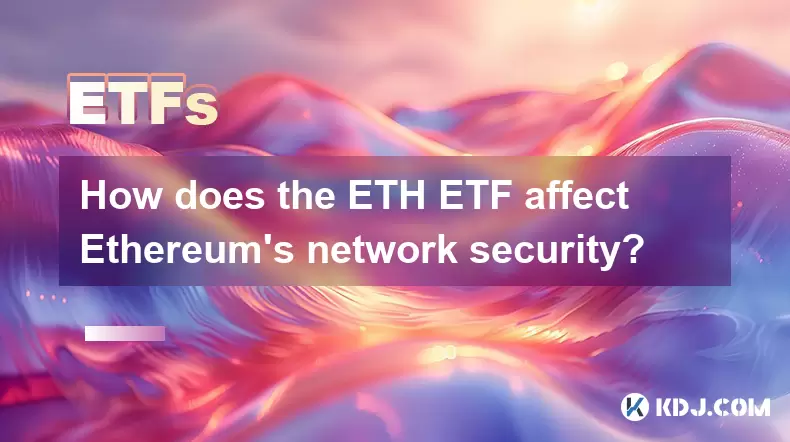
How does the ETH ETF affect Ethereum's network security?
Jul 17,2025 at 01:29pm
Understanding the ETH ETF ConceptAn Ethereum Exchange-Traded Fund (ETH ETF) is a financial product that allows investors to gain exposure to Ethereum ...
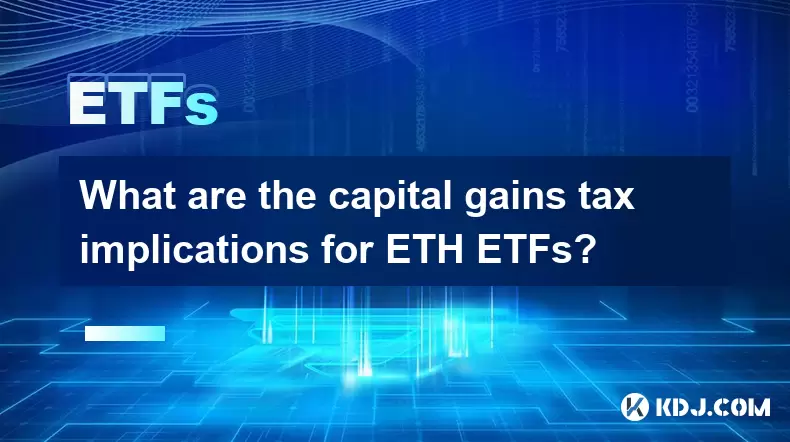
What are the capital gains tax implications for ETH ETFs?
Jul 18,2025 at 08:00am
Understanding Capital Gains Tax in Cryptocurrency InvestmentsCapital gains tax is a tax imposed on the profit realized from the sale of an asset that ...
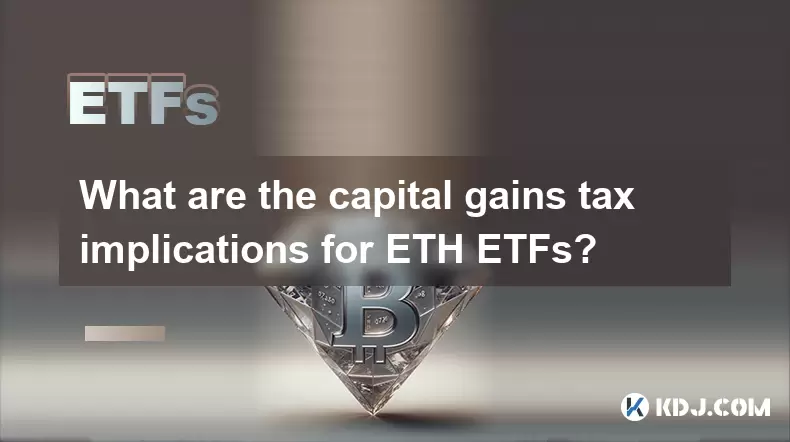
What are the capital gains tax implications for ETH ETFs?
Jul 21,2025 at 11:14am
Understanding ETH ETFs and Their TaxationAn Ethereum Exchange-Traded Fund (ETH ETF) allows investors to gain exposure to Ethereum without directly own...
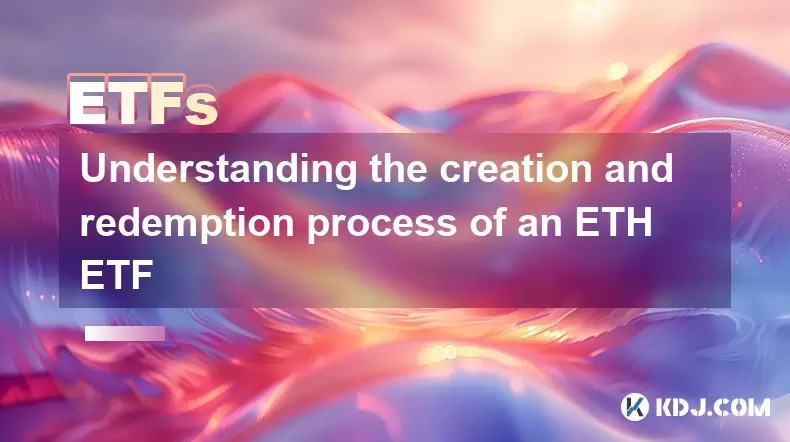
Understanding the creation and redemption process of an ETH ETF
Jul 19,2025 at 07:36am
What is an ETH ETF?An ETH ETF (Ethereum Exchange-Traded Fund) is a financial product designed to track the price of Ethereum without requiring investo...

How to analyze which ETH ETF is the best choice
Jul 19,2025 at 05:01pm
Understanding ETH ETFs and Their RelevanceEthereum Exchange-Traded Funds (ETFs) have emerged as a popular investment vehicle for those seeking exposur...

Long-term outlook for Ethereum ETFs
Jul 22,2025 at 06:42am
What Exactly Is an Ethereum ETF?An Ethereum Exchange-Traded Fund (ETF) is a financial product that tracks the price of Ethereum (ETH) and is traded on...

How does the ETH ETF affect Ethereum's network security?
Jul 17,2025 at 01:29pm
Understanding the ETH ETF ConceptAn Ethereum Exchange-Traded Fund (ETH ETF) is a financial product that allows investors to gain exposure to Ethereum ...

What are the capital gains tax implications for ETH ETFs?
Jul 18,2025 at 08:00am
Understanding Capital Gains Tax in Cryptocurrency InvestmentsCapital gains tax is a tax imposed on the profit realized from the sale of an asset that ...

What are the capital gains tax implications for ETH ETFs?
Jul 21,2025 at 11:14am
Understanding ETH ETFs and Their TaxationAn Ethereum Exchange-Traded Fund (ETH ETF) allows investors to gain exposure to Ethereum without directly own...

Understanding the creation and redemption process of an ETH ETF
Jul 19,2025 at 07:36am
What is an ETH ETF?An ETH ETF (Ethereum Exchange-Traded Fund) is a financial product designed to track the price of Ethereum without requiring investo...

How to analyze which ETH ETF is the best choice
Jul 19,2025 at 05:01pm
Understanding ETH ETFs and Their RelevanceEthereum Exchange-Traded Funds (ETFs) have emerged as a popular investment vehicle for those seeking exposur...
See all articles





















